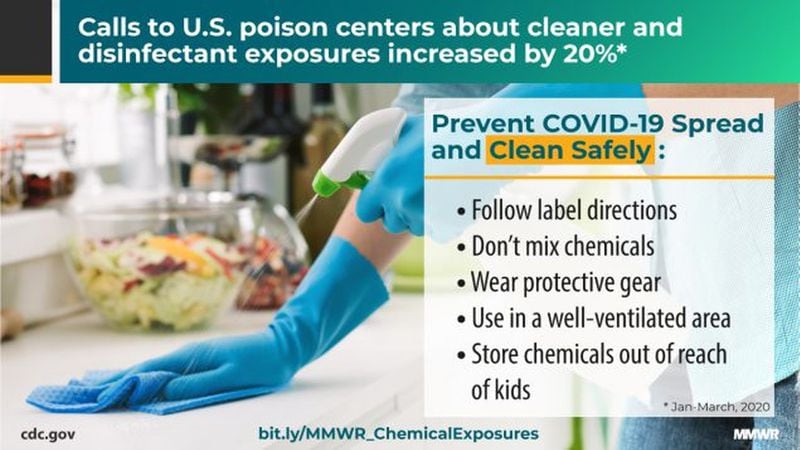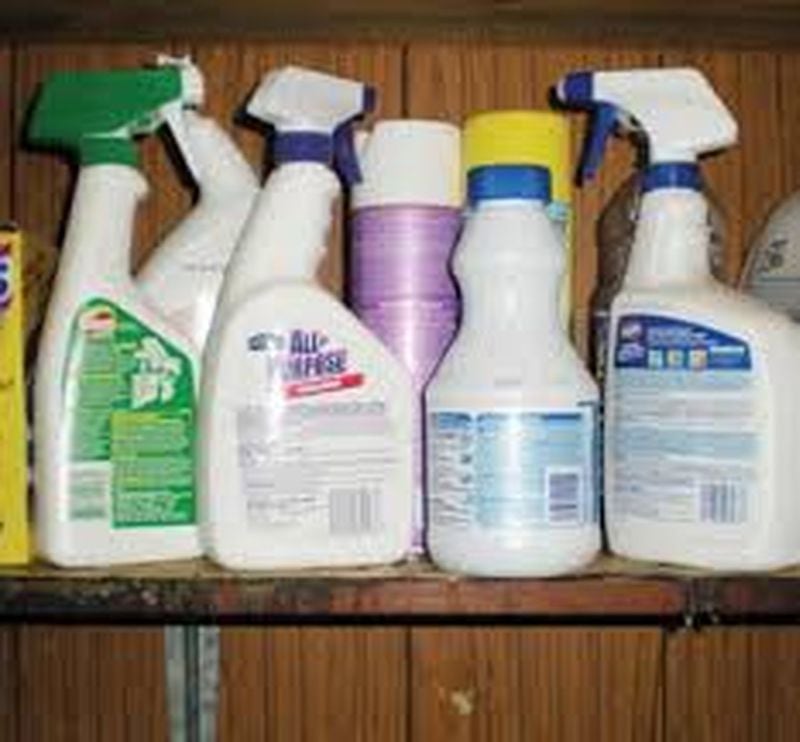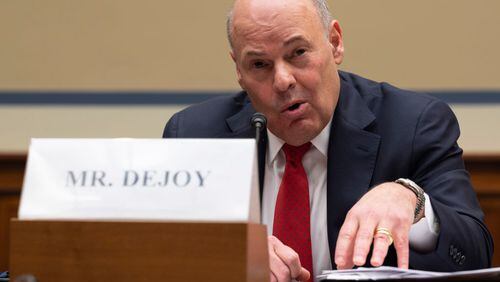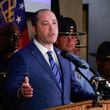Two people in Georgia drank liquid cleaning products over the weekend in misguided attempts to ward off COVID-19, according to the Georgia Poison Center. Both men had histories of psychiatric problems and are expected to recover.
The poison center’s director, Gaylord Lopez, said he did not know if the men guzzled the chemicals because they heard about President Donald Trump’s statements during a Thursday White House briefing, when the president wondered aloud if coronavirus could be treated by injecting a disinfectant into the human body. Since the pandemic began, at least two other Georgians have fallen ill from similar attempts to clean their inner organs with household chemicals, even before Trump’s remarks.
So far, though, the state’s biggest spike in poisonings from cleaning products has been caused by home-bound Georgians mixing products together to furiously scrub surfaces, then falling ill from inhaling fumes. Last year, the poison center handled 49 product-mixing calls in March and April. This year, since March 1 the center has had 115 calls, Lopez said.
“When you mix bleach with certain types of chemicals, you produce a reaction that can cause release of noxious and toxic gases, and if you inhale enough of this stuff, you can induce a chemical pneumonia,” Lopez said.
The same trend has played out across the country with the CDC recommending disinfecting high-touch surfaces, and panicked shoppers clearing store shelves of such products as Clorox, Lysol and hand sanitizer. In the first three months of the year, calls to poison centers about exposures to household cleaners and disinfectants rose 20 percent. “There appears to be a clear temporal association with increased use of these products,” the CDC noted in a report last week.
Georgia has also seen a rise in cases of children ingesting chemicals because their parents, distracted while working from home, left them unattended around unsecured bottles of fluid and medicines, Lopez said. Overall, poison calls have risen 9 percent this year.
Asked about Trump’s comments last week, Lopez lamented in an interview with The Atlanta Journal-Constitution that too many people were interpreting news reports to mean that Trump had recommended injecting disinfectants, when in fact he was only asking questions about the possibility of such a treatment.
On Thursday Bill Bryan, head of the Department of Homeland Security’s science and technology division, had just presented research indicating coronavirus can’t survive for long in direct sunlight or in warm, humid conditions. Trump first floated the idea of blasting the human body with ultraviolet light, then he asked about disinfectant.
“And then I see the disinfectant, where it knocks it out in a minute,” Trump said. “One minute. And is there a way we can do something like that, by injection inside or almost a cleaning. Because you see it gets in the lungs and it does a tremendous number on the lungs. So it would be interesting to check that. So, that, you’re going to have to use medical doctors with. But it sounds — it sounds interesting to me.”
A White House press secretary later said Trump's comments had been taken "out of context" by the news media, and Trump himself later said he was only being "sarcastic." Still, Trump faced rebuke from medical professionals and congressional lawmakers, and his comments prompted the distributor of Lysol to issue a press release warning that "under no circumstance should our disinfectant products be administered into the human body (through injection, ingestion or any other route)."
Lopez noted that living through a pandemic can be especially difficult for the mentally ill.
On Saturday, he said, a man in his 50s living southwest of Atlanta was hospitalized after drinking several ounces of bleach “to prevent Covid.” He was moved to a psychiatric ward before being discharged.
“He said that he took 16 ounces,” the director said. “I don’t know very many patients who will take 16 ounces, but then again, it is a psych history patient.”
On Sunday, a man in his 30s who lives in the Atlanta area ingested a mixture of Pine-Sol, mouthwash, beer and pain medications. He also has since been discharged.
Lopez said he could not release further details about the cases because of patient confidentiality concerns. The Georgia Poison Center learned of both cases after receiving calls from hospitals.
“We don’t ask the question of, was it because they watched a TV show?” Lopez said. “We are just told, ‘What do we do for these patients?’ And it’s our job to try to give them treatment advice to make sure these patients make it.”
Because of the increase in calls during the pandemic, U.S. Health and Human Services has awarded nearly $5 million to poison centers nationwide to improve response capabilities. The Georgia Poison Center will receive $148,000.
About the Author








